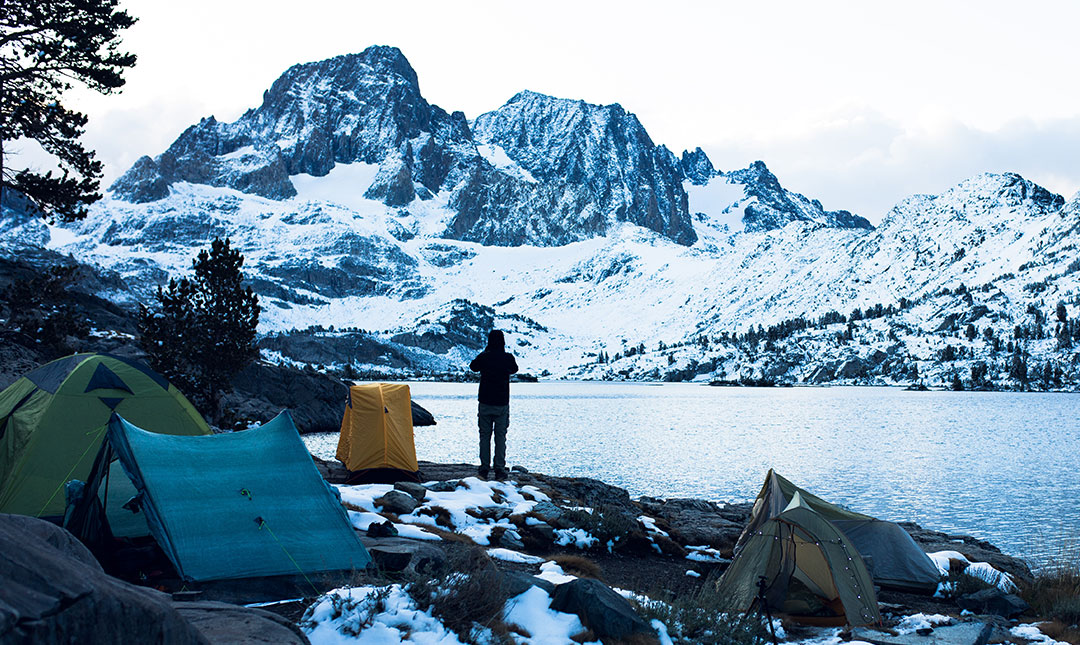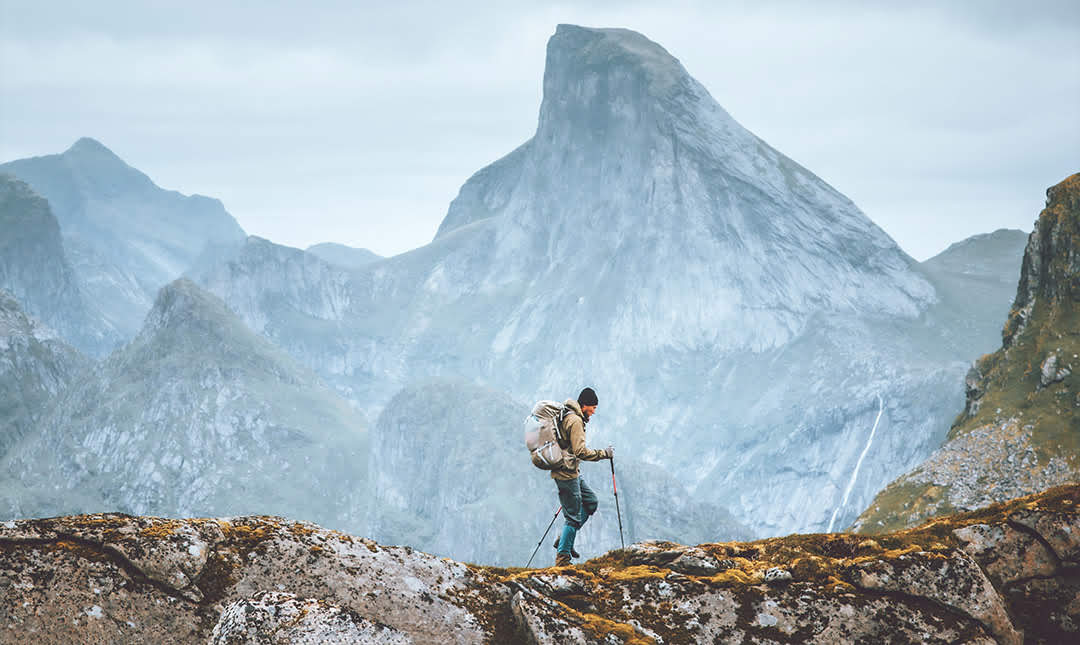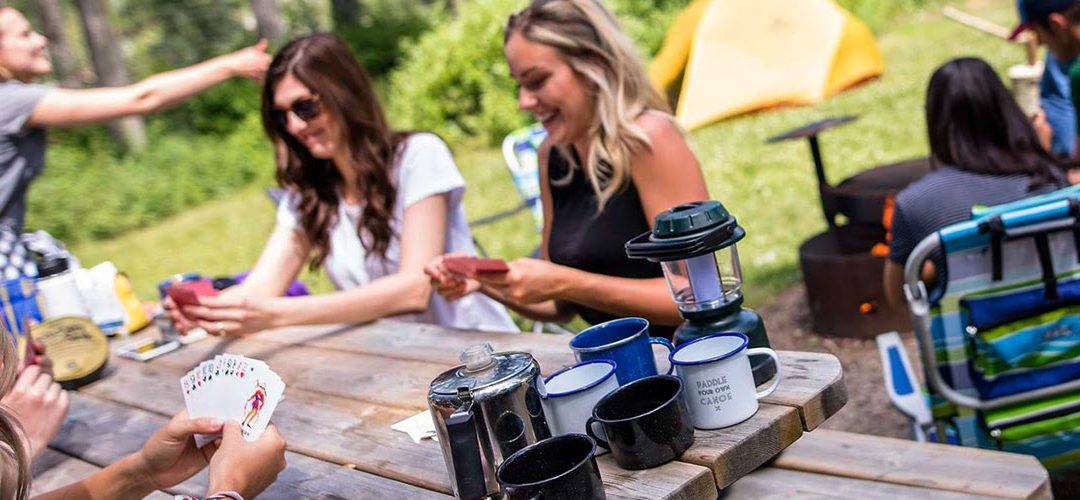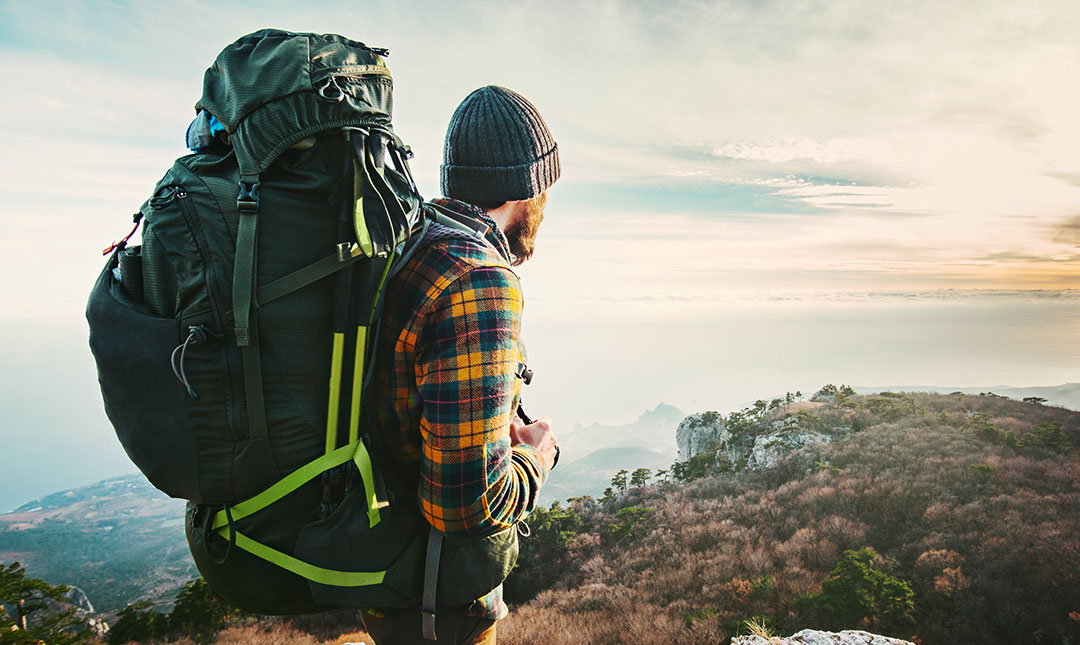Winter can seem like a more challenging time to go on a camping trip, but camping in the snow is entirely possible—in fact, it can even be a lot of fun! But if you’re planning to sleep outside in snowy weather, you’ll need to pack the right gear and take some safety precautions.
Fortunately, we know all about how to camp comfortably in all conditions, and snow is no exception. Below, you’ll find our tips on how to successfully camp in the snow.
Camping in the Snow: What Should You Expect?
Snow presents unique challenges for campers. Here are a few factors you’ll want to consider:
- Wind: A gust or two can be irritating for campers in any season—but when the weather is snowy, wind can do more than blow your tent over. Wind can also blow considerable amounts of snow into your campsite, making your gear wet and buying exposed objects.
- Avalanches: Not all snow falls gently—and if an avalanche occurs, you don’t want to be in the way.
- Hidden Hazards: Snow can make rough or uneven terrain look smooth and flat, but don’t be deceived! Crevasses, hollows, and water hazards are just a few of the things you’ll want to make sure aren’t lurking under a thin layer of freshly fallen white stuff.
- Orientation Challenges: Retracing your steps in the snow might sound easy—unless more snow starts falling. If you’re going to camp in snowy conditions, you’ll need other ways to make sure you know where you are (and how to get back to where you’ve been).
- Extreme Temperatures: Snow cover changes ambient temperatures. If you’re in a snowy area, always assume you’re going to feel colder than you would in the same conditions if no snow was present.
Cool (But Not Too Cool) Tips for Snowy Camping
Here are a few ways you can prepare yourself for camping in snowy conditions:
- Drink More Water: Your body still loses moisture in the cold—but since you’ll be sweating less, you might not notice. Make sure to drink water on a regular schedule to avoid accidental dehydration.
- Eat Well (and Often): Your body also burns more calories in the cold, so you’ll need food that provides more energy. Nuts, chocolate, and energy bars make great snacks throughout the day. You’ll also want to cook plenty of hot and hearty meals for breakfasts and dinners.
- Look Out for Frostbite: Learning the signs of cold-related injuries like frostbite and hypothermia can save your life—or the life of a fellow camper. You can also help prevent these conditions by avoiding factors that increase their likelihood (such as alcohol consumption).
- Keep Moving: Remaining active during snowy weather will prevent the cold from making you tired and help your body produce more heat. However, it will also cause you to burn more calories and lose more moisture (which is why eating right and hydrating are so important).
What to Pack for Successfully Camping in the Snow
Knowing how to adjust your routine for camping in cold weather is one thing, but you’ll also need specific gear if you plan to camp in the snow. Here are a few items we consider essential:
4 Season Tent
A 3 season tent isn’t going to cut it if you plan on dealing with significant snowfall during your trip. 4 season tents, on the other hand, are built to handle extreme winter conditions. These tents are structured to let large amounts of snow pile up on top without collapsing, and are typically made from more durable fabrics so that they won’t rip and leak heat.
Winter Sleeping Bag
Make sure your sleeping bag is rated for at least a few degrees lower than the coldest temperature you plan to sleep in, and ensure that it fits snugly. Empty space in a sleeping bag makes it easier for your body heat to escape and prevents you from staying warm overnight.
2 Sleeping Pads
Camping on snow requires additional tent insulation to prevent heat loss through the floor of your tent. Double up on your sleeping pads, and make sure to use insulation with higher R-values.
A Winterproof Stove
Not all portable stoves are suitable for camping in snowy weather. You’ll need a stove that is resistant to cold weather, and it’s also wise to choose a model that produces significant amounts of heat so it can pull double-duty as a source of warmth. Consider the type of fuel your stove uses—wood produces a lot of heat but is harder to pack and carry, while liquid fuel often burns better at high altitudes.
Warm Clothing
Last (but certainly not least), make sure to pack appropriate snow clothes. We recommend warm socks, snow boots, mid-weight base layers, fleece pants, a warm coat, a waterproof shell (jacket and pants), a hat that covers your ears, thick gloves, and sunglasses.
Campsite Setup Tips for Camping in the Snow
Before pitching your tent in a snowy region, follow these tips to ensure your safety:
- Stay Out of the Wind: Pitching your tent near trees (as long as they don’t look damaged or unsteady) is an excellent way to shield yourself from blowing snow while you sleep. If you’re camping in an open area, try building a wall of snow around your tent instead.
- Avoid Avalanches: Don’t pitch your tent near rock walls or steep inclines if you think snow (or anything else) might slide down them. The last thing you want is to get buried under a drift while you sleep.
- Pack Down the Snow: Prevent yourself from sinking into a drift overnight by packing down the snow at your campsite before pitching your tent.
- Look for Landmarks: Snow that falls overnight can change the appearance of a campsite and disorient you in the morning, so try to choose a site with at least one or two obvious landmarks nearby.
- Have Water Nearby: You don’t want to camp directly on ice, but having a water source nearby can prevent you from having to melt snow for drinking water if you run out.
Ideal Sites for Camping in the Snow This Winter
Here are some of our favourite snowy winter campsites:
Plamondon Whitesands
A family-oriented RV park and campground with onsite water near Lac La Biche.
Mossbank RV Park
A quiet campground located near numerous recreational facilities.
Bruderheim Starlight Campground
A peaceful and relaxing campground near Bruderheim Sand Hills.
Wagons West RV Park
A clean and quiet campground with 62 full-service sites.
Knouff Lake Wilderness Resort
One of the oldest 4-season run resorts of its kind in British Columbia.
Cogburn Family Wilderness Resort
A safe and enjoyable family-friendly campground.
Campbell Valley Camping Experience
A destination campground located on 5 acres of private property.
Don’t Let a Little Snow Stop You from Camping
Successfully camping in the snow can be easier than you think, as long as you’re prepared. Use the tips above to make sure your next winter camping trip is snow problem at all.





Recent Comments